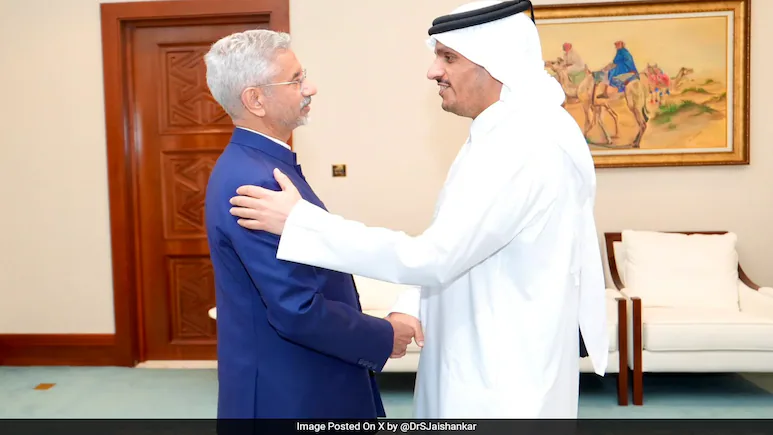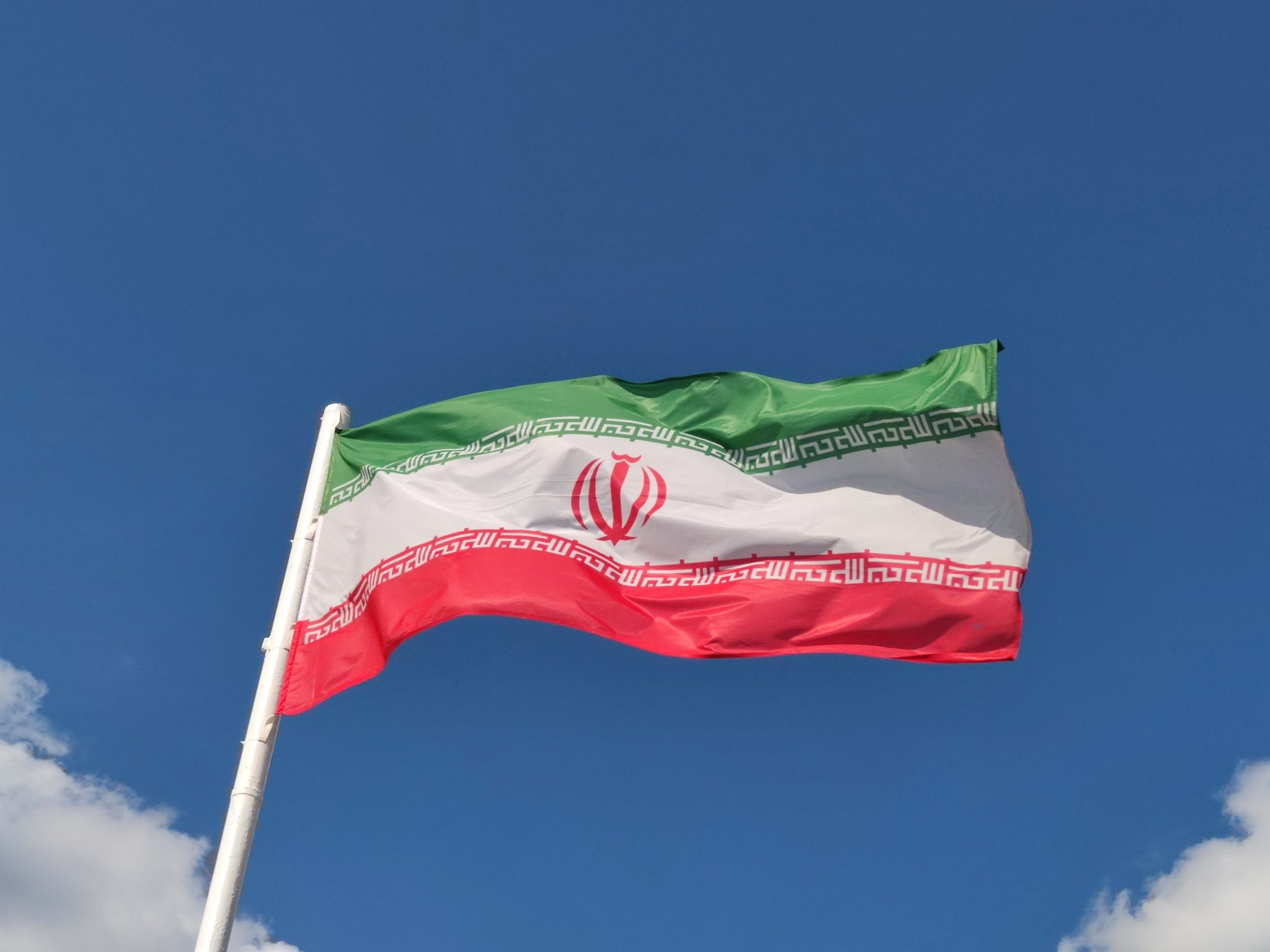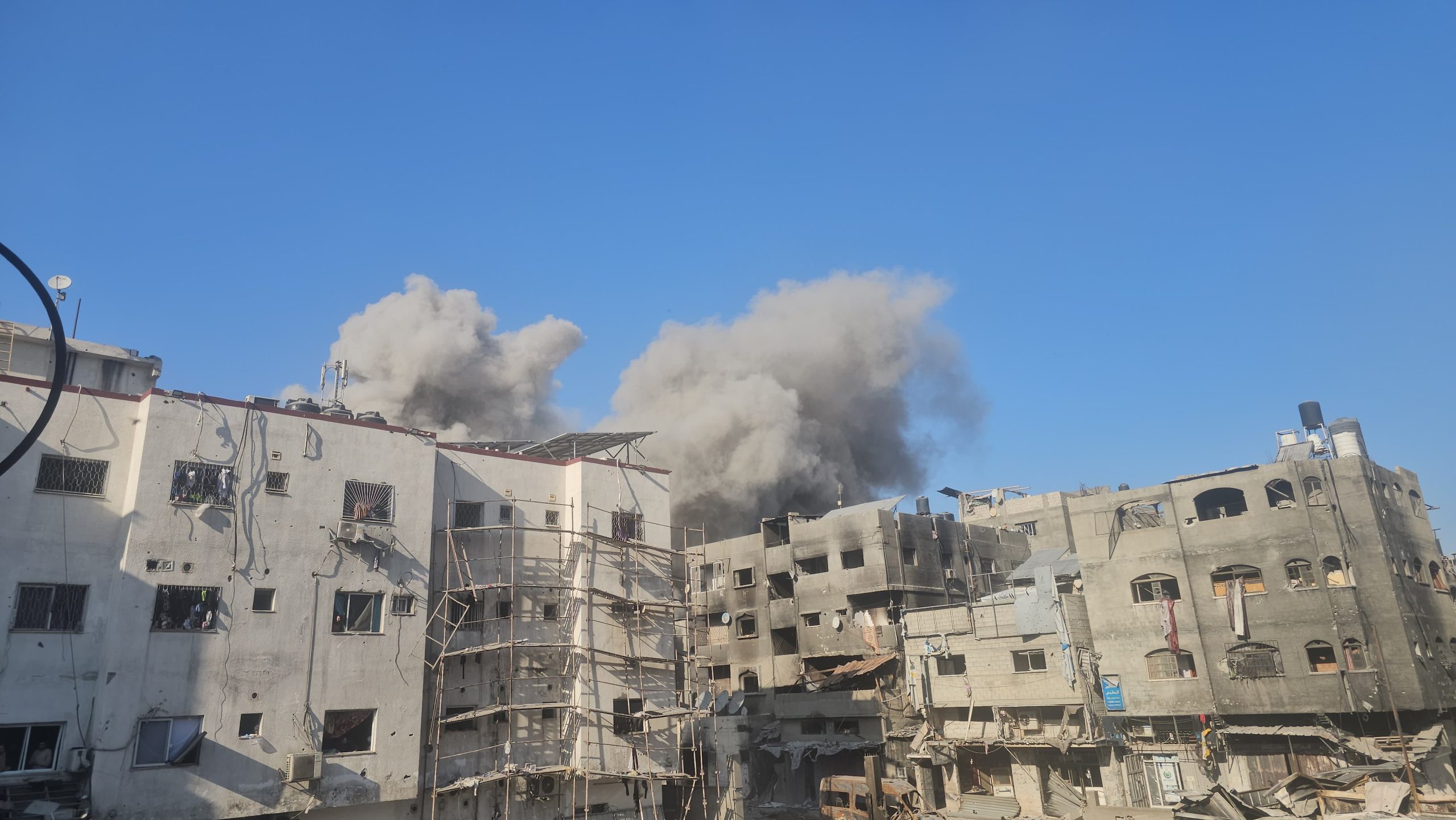Qatar was quick to extend a helping hand to Lebanon following the tragic event.
Shards of glass scattered across the city, clocks fixated at 6:09pm and regular fires at the dismembered Beirut Port still hold a grieving nation captive in a time capsule dated 4 August, 2020.
Two years have passed since the tragic Beirut blast, and for most of Lebanon’s population and diaspora, the incident remains an unhealed wound.
For Lebanese-American music writer Danny Hajjar, the pain is coupled with survivor’s guilt.
“I think I still feel as frustrated, sad, dejected, and hopeless as I did that day. I also feel some element of survivors’ guilt, given that I grew up and live in the Lebanese diaspora community in the United States and was not directly impacted by the blast,” Hajjar told Doha News.
The Beirut Port has decorated Lebanon’s capital city since the 1980’s and was known as one of the busiest in the Eastern Mediterranean. It is Lebanon’s main seaport, handling 60% of its imports while storing its food and medical equipment.
On 4 August 2020, the Beirut Port burst into flames within a number of minutes, rocking the entire capital and its surroundings. The atomic-like explosion was fuelled by 2,750 tonnes of unsafely stored ammonium nitrate.
“My thoughts then were primarily ones of hopelessness and guilt, along with infuriation, profound sadness, and deep empathy for all communities in Lebanon,” said Hajjar, when asked about his feelings at the time.
The blast is considered to be history’s largest non-nuclear, human-caused explosion and the sixth-largest accidental blast in human history. More than 200 people were killed and 6,000 others were injured.
The death toll continues to rise two years on as some victims are still succumbed to their injuries,including Rita Antoine Hardini, Julia Awdeh and Rami Fawaz, who died earlier this year.
On Sunday, just days ahead of the anniversary of the tragedy, Beirut witnessed the partial collapse of the grain silos at the port, with rising smoke triggering the feelings of the traumatic event.
“The government has forced the people to live in this trauma every single day since the blast,” said Hajjar.
How Qatar helped
Like Hajjar, many Lebanese diaspora mobilised immediately, holding vigils and sending aid.
Here in Qatar, members of the 40,000-strong Lebanese community gathered to put together aid packages and send them to their homeland.
The Qatari government extended a helping hand to Lebanon hours after the explosion.
Qatar’s Amir Sheikh Tamim bin Hamad Al-Thani reached out to Lebanon’s President Michel Aoun at the time, to provide necessary assistance.
Qatar sent aircrafts carrying fully equipped field hospitals with 500 beds straight to Beirut. Respirators and other necessary medical supplies were made available.
The Gulf state also dispatched personnel from the Qatari Search and Rescue Team of the Lekhwiya, or Internal Security Force, to help with emergency rescue operations as many remained trapped under the rubble.
Sheikh Tamim further personally donated $50 million to help rebuild the capital, with damages estimated to be worth at least $15 billion. Almost a year after the blast, Doha pledged to reconstruct the Karantina Hospital in Beirut through the Qatar Fund for Development (QFFD).
More recently, Beirut’s caretaker economy minister, Amin Salam, told the Associated Press (AP) that he is scheduled to discuss plans on building two new grain silos in Beirut, with Qatar.
‘Kellon ya’ni kellon’
Despite billions of aid sent to the country in response to the tragedy, it has yet to financially recover. A year before the tragic blast, Lebanon was already grappling with a worsening economic crisis.
It was 2019 when people protested the lack of basic services and living conditions while calling for a complete overhaul of the government and system under the slogan ‘kellon ya’ni kellon’, which translates to ‘all of them means all of them’.
“In my mind, those demands will always remain no matter what,” said Hajjar.
During the same year, Sheikh Tamim was the only Gulf leader to attend the Arab Economic and Development Summit in Lebanon to break Beirut’s isolation. Doha had also bought $500 million of Lebanon’s bonds to support its struggling economy.
The protests then forced then-Prime Minister Saad Hariri to resign, saying he was “at a dead end”, leading to the announcement of his decision to end his political career earlier this year.
Smaller scale protests continued as the COVID-19 outbreak fast-tracked the country’s worsening situation before the blast occurred. Currently, the Lebanese currency has lost 90% of its value to the US dollar.
‘They’ knew
The blast exposed deep corruption and what many have described as ‘governmental negligence’.
The chemical was stored in the country since 2013, when a Russian-owned ship, named the MV Rhosus, stopped in Lebanon after facing financial difficulties.
A 2021 Human Rights Watch (HRW) report titled “‘They Killed Us from the Inside’: An Investigation into the August 4 Beirut Blast,” found that officials “foresaw and tacitly accepted the risks of death posed by the ammonium nitrate’s presence in the port.”
According to HRW, customs official Colonel Joseph Skaf warned other customs officials in 2014 that the ship carried “highly dangerous and explosive ammonium nitrates”.
Skaf died in 2017 under what HRW described as “suspicious circumstances”, with at least two others murdered between then and 2020 —all believed to have information on the explosives.
Months before the blast, Nehme Brax, a customs official, informed Major Joseph Naddaf about the ammonium nitrate. Naddaf concluded an investigation per the order of Major General Tony Saliba, the State Security director, confirming the storage of explosive materials.
HRW state that Naddaf was informed by an expert that “if the ammonium nitrate were to ignite, it would lead to “a huge explosion with catastrophic consequences on the port of Beirut.””
In June 2020, then-Prime Minister Hassan Diab reportedly first learned of the ammonium nitrate and decided to visit the port the following day.
“Diab said he decided to go to the port the next day and sent his security detail to the port that evening to obtain more information. His security detail gave him information that conflicted with what he was initially told,” HRW said.
Diab then cancelled his visit and asked for a report from his security detail, which he said he “forgot about”, adding that “there are disasters every day.” Diab and other government members stepped down after mass protests took place following the explosion.
President Aoun had also confirmed previously receiving the report and claimed that he tasked his security advisor to follow up with it, stating that “he was not responsible.”
“He later said that when he found out about the ammonium nitrate at the port, it was ‘too late.’
President Aoun has the power to unilaterally convene a meeting with the Higher Defence Council,” said HRW.
Fingers were also pointed at the Hizbullah movement for its influence over the port and links to politicians represented in the Transitional Commission, which handles the hub’s financial matters.
According to analysts, the movement has a record of using ammonium nitrate to create explosives used by Syria’s Bashar Al Assad regime. With control over the port, there was a reluctance to act upon learning about the chemicals.
Nadim Shehadi, Executive Director of Lebanese American University’s New York Headquarters, said the control of Hizbullah has left Lebanon in “a state of paralysis”.
“I think that Lebanon has one crisis. We have a system based on agreements and we have one player that doesn’t abide by the agreements, it’s the same player that assassinated Hariri,” Shehadi told Doha News, referring to the 2005 killing of former Lebanese President Rafic Al Hariri.
Absence of accountability
This year saw the first elections since 2018 in an effort to encourage other nations to provide Lebanon with aid. The elections disappointed the public as they saw a return of the same politicians accused of the country’s crises.
“As one international official told me, carrying through substantial reform would amount to political suicide for these people. They won’t do it. Instead, they will keep going through the motions of make-believe reforms that fall way short of what is needed to convince the IMF,” Heiko Wimmen, Project Director of Iraq, Syria, and Lebanon at Crisis Group told Doha News.
To date, there has been an absence of accountability despite the evidence presented after the blast. Much of the blame was pointed towards the Hizbullah movement, who called for the removal of Judge Tarek Bitar, who was leading the investigation.
“The problem we have is not the port. The problem we have proceeds the port, the collapse of the economy, the assassinations, the bankruptcy. We are under the control of a criminal organisation,” added Shehadi.
Meanwhile, Dr. Bassel Salloukh, Associate Professor and Head of Politics and International Relations Programme at the Doha Institute for Graduate Studies, said accountability has been the “nemesis of the post-war sectarian order in Lebanon”.
“The power-sharing system in postwar Lebanon is the main obstacle to any kinds of reforms, whether political, economic, legal, or otherwise. The myth that the Lebanese can only coexist as sects rather than citizens with inalienable rights is the biggest obstacle,” Dr. Salloukh told Doha News.
To date, the Beirut Port blast symbolises many of the issues facing Lebanon, refusing to stitch the wound closed until the nation’s demands for accountability are heeded.
“The blast is a symptom of all of those years and years of government inaction and apathy, and decades of placing that burden on the people while simultaneously robbing them of their livelihoods,” said Hajjar.







